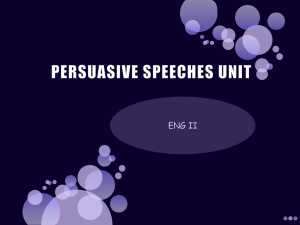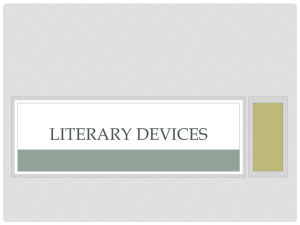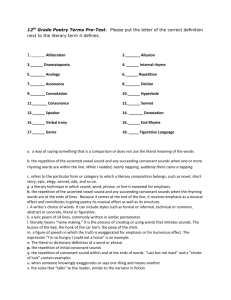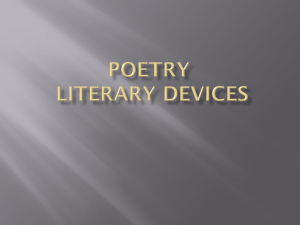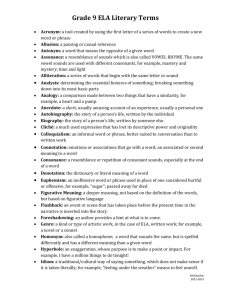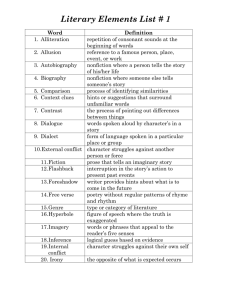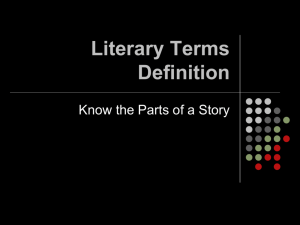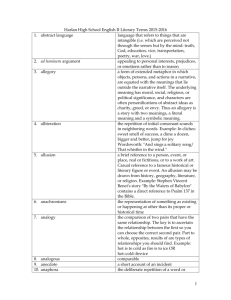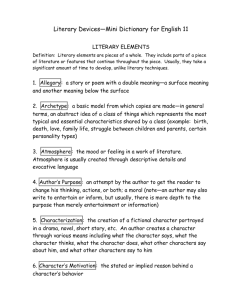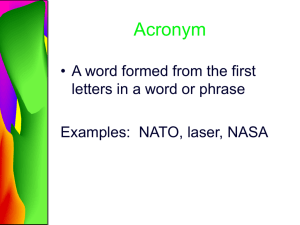Literary Terms Review: English II
advertisement
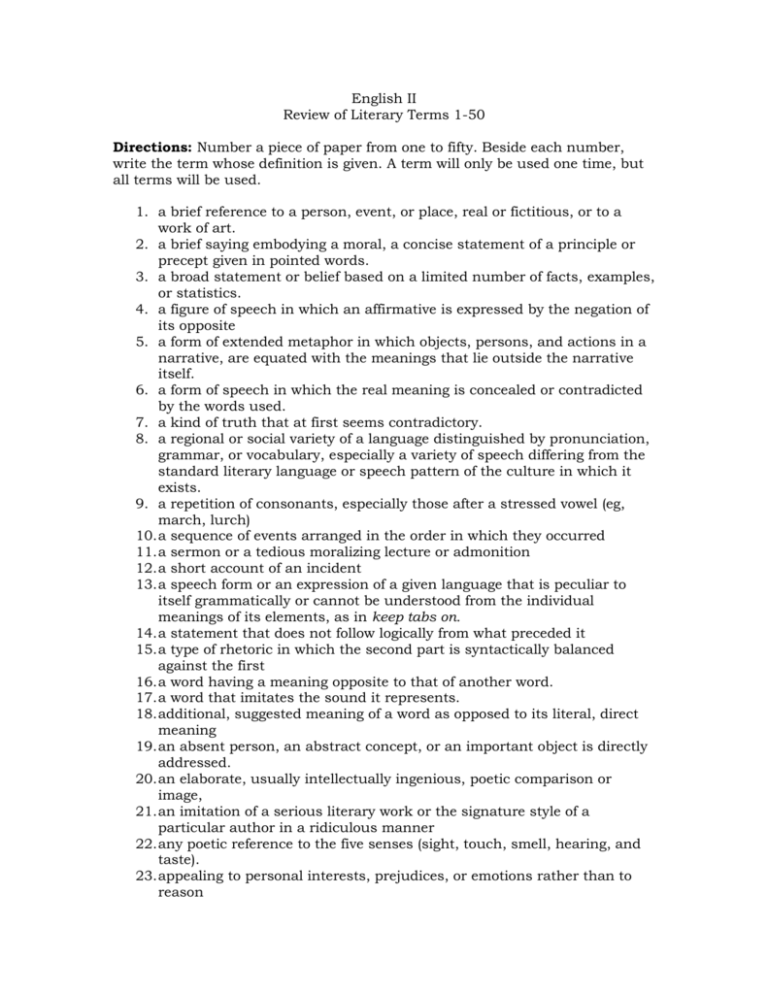
English II Review of Literary Terms 1-50 Directions: Number a piece of paper from one to fifty. Beside each number, write the term whose definition is given. A term will only be used one time, but all terms will be used. 1. a brief reference to a person, event, or place, real or fictitious, or to a work of art. 2. a brief saying embodying a moral, a concise statement of a principle or precept given in pointed words. 3. a broad statement or belief based on a limited number of facts, examples, or statistics. 4. a figure of speech in which an affirmative is expressed by the negation of its opposite 5. a form of extended metaphor in which objects, persons, and actions in a narrative, are equated with the meanings that lie outside the narrative itself. 6. a form of speech in which the real meaning is concealed or contradicted by the words used. 7. a kind of truth that at first seems contradictory. 8. a regional or social variety of a language distinguished by pronunciation, grammar, or vocabulary, especially a variety of speech differing from the standard literary language or speech pattern of the culture in which it exists. 9. a repetition of consonants, especially those after a stressed vowel (eg, march, lurch) 10. a sequence of events arranged in the order in which they occurred 11. a sermon or a tedious moralizing lecture or admonition 12. a short account of an incident 13. a speech form or an expression of a given language that is peculiar to itself grammatically or cannot be understood from the individual meanings of its elements, as in keep tabs on. 14. a statement that does not follow logically from what preceded it 15. a type of rhetoric in which the second part is syntactically balanced against the first 16. a word having a meaning opposite to that of another word. 17. a word that imitates the sound it represents. 18. additional, suggested meaning of a word as opposed to its literal, direct meaning 19. an absent person, an abstract concept, or an important object is directly addressed. 20. an elaborate, usually intellectually ingenious, poetic comparison or image, 21. an imitation of a serious literary work or the signature style of a particular author in a ridiculous manner 22. any poetic reference to the five senses (sight, touch, smell, hearing, and taste). 23. appealing to personal interests, prejudices, or emotions rather than to reason 24. comparable 25. comparison of two unlike things using the verb "to be" and not using like or as in a simile 26. descended from or related to a common ancestor. (Said of words or languages: derived from the same original form.) 27. exaggeration or overstatement. 28. expressing a command or plea 29. language that describes specific, generally observable, persons, places, or things; in contrast to abstract language 30. language that does not exaggerate or embellish the subject matter and uses no tools of figurative language 31. language that is used or understood only by a select group of people 32. language that refers to things that are intangible 33. ranking events or items in the order of their significance 34. substitution of a word for another word closely associated with it. 35. the comparison of two pairs that have the same relationship 36. the deliberate repetition of a word or phrase at the beginning of several successive verses, clauses, or paragraphs. 37. the literal, dictionary definition of a word 38. the omission of a conjunction from a list 39. the omission of a word or phrase necessary for a complete syntactical construction but not necessary for understanding 40. the process of drawing a conclusion from given evidence 41. the repetition of initial consonant sounds in neighboring words. 42. the repetition of vowel sounds in a sequence of nearby words 43. the representation of something as existing or happening at other than its proper or historical time 44. the selection and arrangement of words in a literary work 45. the significance of a story or event 46. the substitution of a mild or less negative word or phrase for a harsh or blunt one 47. the use of words out of their normal order. 48. the use of words, phrases, symbols, and ideas in such a way as to evoke mental images and sense impressions by using words in a nonliteral way, giving them a meaning beyond their ordinary one 49. two contradictory words used together. 50. words or phrases which have strong emotional overtones or connotations and which evoke strongly positive (or negative) reactions far beyond the specific meaning of the word which is listed in the dictionary
